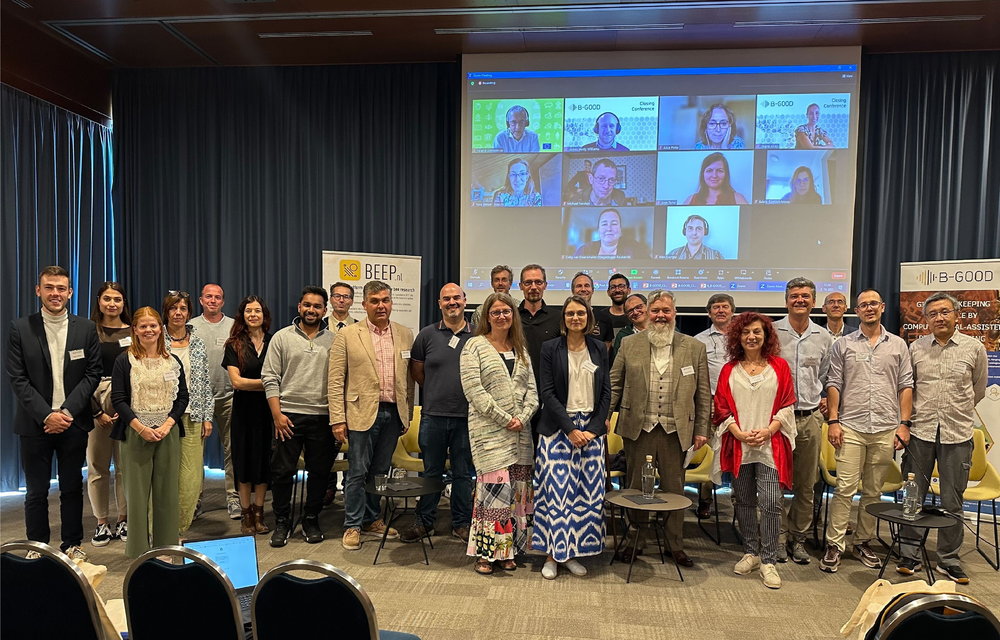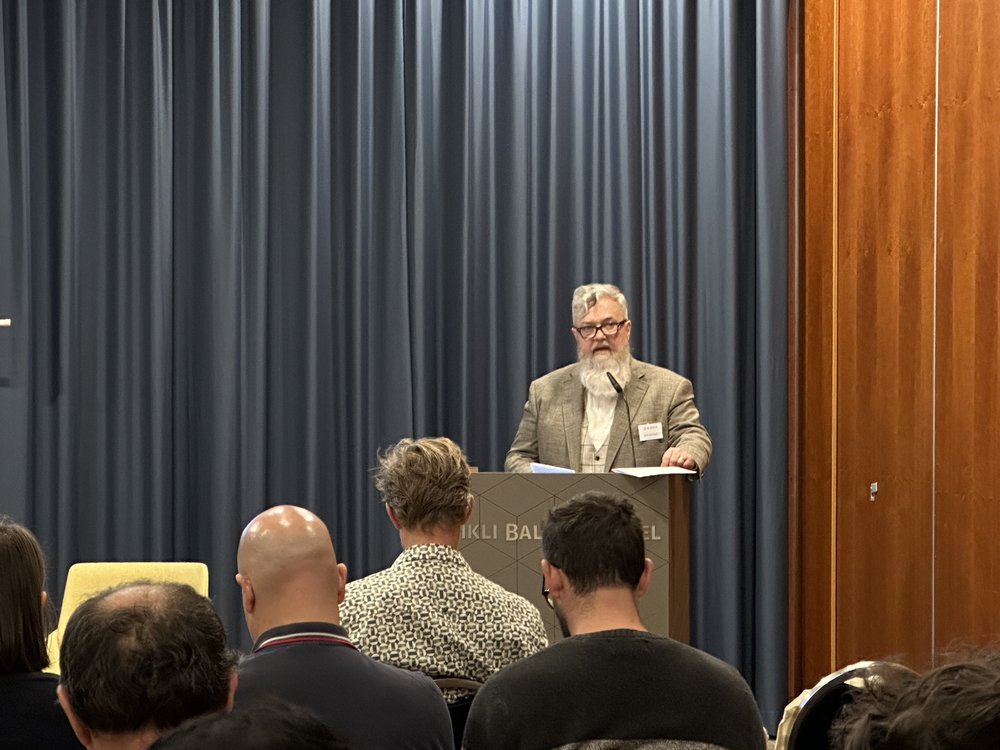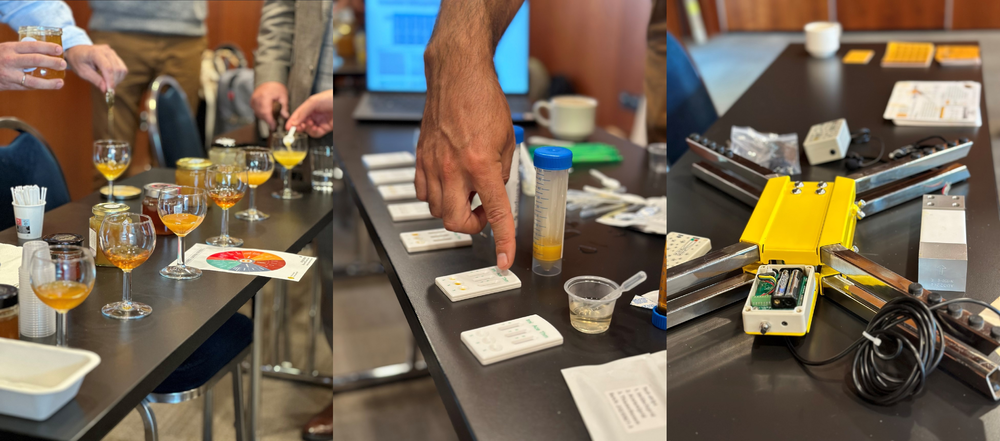Giving Beekeeping Guidance by cOmputatiOnal-assisted Decision making
Paving the way towards healthy and sustainable beekeeping: the B-GOOD closing conference
The EU Horizon 2020 project B-GOOD concluded with a closing conference held in Bled, Slovenia, this October. This marked the culmination of four and a half years of dedicated research, extensive field studies, the development of innovative technologies, and the exchange of knowledge among project partners. The journey began with a kick-off Meeting in Ghent, Belgium in July 2019 and concluded with this event on the 2nd of October, 2023, just before the COLOSS congress on the 3rd and 4th of October. The conference took place at the Rikli Balance Hotel, and it offered an online participation option for those unable to attend in person.

Photo: B-GOOD partners at the closing conference in Bled, Slovenia.
The project partners were delighted to gather and celebrate their commendable accomplishments over the last few years. The primary objectives of the event were to showcase the scientific and technical innovations and developments, promote the utilisation of key outcomes, create networking opportunities, and, most importantly, celebrate the success of the project. This scientific event featured oral presentations, poster sessions, and information market stands to provide a comprehensive overview of the results and technologies developed during the project. Attendees had the opportunity to engage with consortium members, ask questions, and exchange ideas.
The day started with an introduction by B-GOOD project coordinator Prof. Dirk de Graaf (Ghent University), followed by six presentations showcasing different aspects of the project and its respective accomplishments.

Photo: Prof. Dirk de Graaf setting up the scene.
"Why are honey bees dying and sustainable perspectives offered by automated health monitoring" was presented by Prof. Dirk de Graaf and outlined a new concept of colony losses and the need to make beekeepers’ interventions tailor-made. Dirk’s overview also stressed the importance of hive monitoring systems, as well as the need to shift to more resilient beekeeping.
"Discovery of novel vibrational signals from the honey bee colony and what they tell us about bee health" by Dr Martin Bencsik (Nottingham Trent University) explained more about the work of WP2 and vibration sensors and generators installed by the B-GOOD partner TNTU, which enable non-invasive monitoring and early detection of colony health issues.
WP3's presentation "Development of dynamic landscape models that capture the major floral resources for bees" by Dr Elżbieta Ziółkowska (Jagiellonian University) shed more light on how B-GOOD developed a method to map floral resources across Europe, incorporating habitat classification, plant composition, bee-friendliness values, an index, and a habitat score.
"Data-driven honey bee colony health status prediction using machine learning methods" by Dr Xiaodong Duan (Aarhus University) focused on the machine learning models, including neural networks, that were developed under WP5 to predict the health status of bee colonies using data from BEEP automatic monitoring and inspections, offering beekeepers valuable tools for colony management.
One of WP6's achievements was the data portal website that was designed and implemented to manage and share datasets among project partners, with fine-grained permissions and the potential for public sharing of datasets in the future. More about it was explained by Marten Schoonman (BEEP Foundation) in his presentation "Big data streams, storage and sharing and the sustained use of tools and services developed in B-GOOD", as it is crucial for the sustained use of tools and services developed in B-GOOD.
Wim Verbeke's (Ghent University) presentation "Segmentation of the beekeeping sector and how it views novel hive monitoring technologies" explained how beekeepers were segmented into five distinct types based on their motivations and orientations, providing insights into the diverse nature of beekeepers in Europe. This is highly relevant when considering how different segments of the beekeeping sector may view and adopt novel hive monitoring technologies.
Following an overview of the EU policy landscape by DG policy officer Valerio Abbadessa, a panel discussion gave the audience the chance to pose their questions. The event ended with a science market with stands and posters showcasing the work and outputs of project partners and the opportunities for the attendees to interact and connect. The session was also live-streamed for online participants.

Photos: Different stands from the science market at the B-GOOD closing conference.
For the in-person attendees, there was a celebratory reception and a social dinner to end the day.
The meeting talks and presentations, as well as questions and answers, were recorded and will be made available on the project’s YouTube channel. More detailed results, outcomes and strategies for their exploitation will follow soon, so stay tuned!